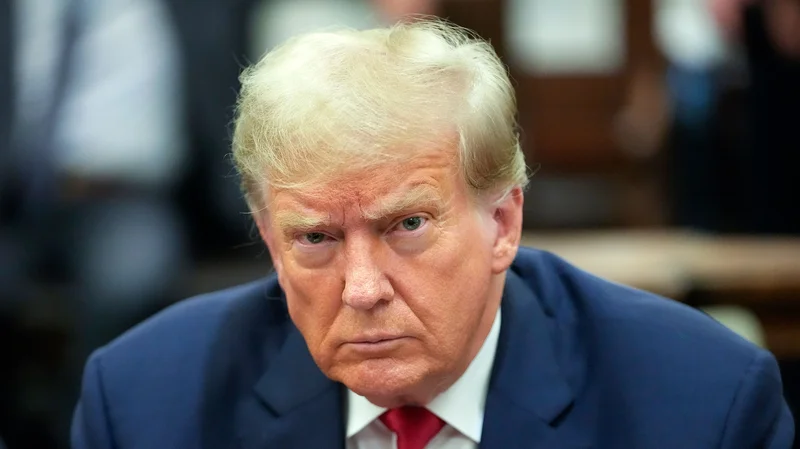Trump's Obesity Drug Deals: A Dose of Reality
Okay, folks, let's unpack this announcement from Trump on obesity drug prices. Deals with Eli Lilly and Novo Nordisk, lower prices on GLP-1s, a new website – TrumpRx.gov – launching in January. It all sounds… ambitious. And as usual, the devil's in the details, or rather, the data.
The core promise is cheaper access to GLP-1 drugs like Wegovy and Zepbound. These have been largely out of reach for many, often costing over $1,000 a month. Medicare coverage starting mid-2026, with a $50 copay, sounds great on the surface. But let's look closer at the eligibility criteria. You need a BMI over 27 with other conditions, a BMI over 30 with uncontrolled hypertension, or a BMI over 35.
Around 10% of Medicare beneficiaries will supposedly qualify. Ten percent. That's the number that jumps out. What about the other 90%? Are they just out of luck? And what about the people with a BMI of 29 who don't have any other qualifying conditions, are they simply not sick enough?
The starting doses are also key. $149 a month for new obesity pills, $350 for existing injections (dropping to $245 over two years) on TrumpRx. Okay, that's better than $1,000, but it's still not cheap. And those are just the starting doses. What happens when you need to titrate up? The multidose pen of Zepbound will be available at $299 per month at the lowest dose, with additional doses being priced up to $449 per month on LillyDirect. So, it's not a flat rate, and costs can still climb significantly.
Then there's the TrumpRx.gov website. Direct-to-consumer, discounts… it has a certain ring to it. But who is running this thing? What's the supply chain? Is it going to be overwhelmed by demand? These are the questions that immediately spring to mind.
Health and Human Services Secretary Robert F. Kennedy Jr. is claiming 125 million pounds lost by next year. That's... a bold prediction (to put it mildly). That's an average of what, 2.5 pounds per eligible person per month? It's possible, but it assumes near-perfect adherence to the medication and lifestyle changes, which, let's be honest, is rarely the case.

Eli Lilly CEO David Ricks calls it “a pivotal moment.” Novo Nordisk CEO Mike Doustdar says it will “bring semaglutide medicines to more American patients at a lower cost.” Of course, they do. It's their job to say that. But let's not mistake corporate PR for altruism.
The "most favored nation" pricing policy is the backbone of this initiative, tying U.S. drug prices to the lowest prices abroad. TrumpRx will supposedly offer "at least U.S. net prices or most favored nation pricing on nearly all primary care drugs." This sounds good in theory, but implementation is going to be a logistical nightmare.
How do you even track and enforce "most favored nation" pricing across different countries with varying healthcare systems and regulations? What happens when a country changes its pricing policies? Does TrumpRx update its prices in real-time? And what about currency fluctuations? It's a complex web of variables.
And here's the part of the report that I find genuinely puzzling. Eli Lilly and Novo Nordisk will "share savings from foreign drug price increases on existing products." Savings from increases? That sounds like a loophole big enough to drive a truck through. If foreign prices go up, they "share" the savings… with whom? And how does that translate to lower prices for American consumers?
Former President Biden proposed a similar rule, but the Trump administration declined to finalize it. It would have extended access to roughly 3.4 million Medicare beneficiaries and cost taxpayers as much as $35 billion over nine years. So, Trump's plan is supposedly more efficient? Or does it just shift the costs elsewhere, perhaps onto consumers through higher copays or limited access?
Semaglutide is already included in Medicare drug price negotiations under the Inflation Reduction Act, signed into law by Biden in 2022. So, some of this price reduction was already coming down the pike.
One final note: the announcement was delayed when a man standing behind Trump fainted. It's a small detail, but it's also a reminder that these events are carefully staged, and even the best-laid plans can go awry. It also might be a metaphor for the entire initiative – a grand spectacle with underlying weaknesses.
The Trump administration's obesity drug deals are more complex than they appear at first glance. Sure, some people will benefit from lower prices and increased access. But the eligibility criteria are restrictive, the long-term costs are uncertain, and the "most favored nation" pricing policy is fraught with logistical challenges. It feels like a political win disguised as a healthcare breakthrough, a dose of hope with a potentially bitter aftertaste.